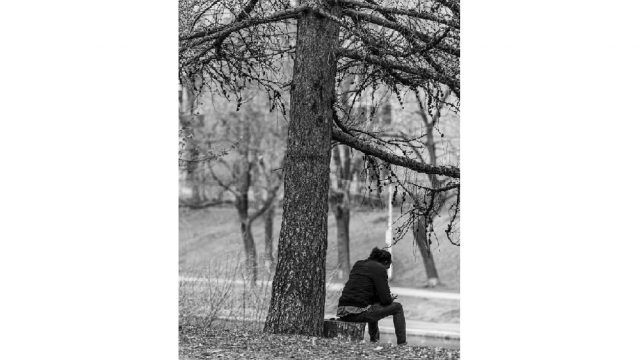Alex’s story
Age: 28
Male (from Eastern Europe)
I moved to the UK about 10 years ago. In my home country I am still part of an ethnic minority group which means that sometimes I am confronted with the idea that I don’t belong there. Here, in the UK, I am a foreigner, so sometimes I feel like I don’t belong here either. Now with Brexit, and all the political turmoil that has come with it, my sense of not belonging has been amplified even more. The only time I feel like I belong is when I play music and interact with other musicians. I feel like my personal background is meaningless during the act of performance. As a musician, I have been inspired by British rock music and have always felt a connection with the culture as a result. At one point after Brexit, I was living in a shared house where I experienced xenophobic hatred and I had to move out as result. Although one of my current flatmates is a ‘Leaver’, we have actually become close friends as we have a lot in common besides our contrasting political views.
With regards to my struggles with mental health, these have come in the forms of isolation and a crippling sense of not belonging; being too different and being rejected quite a lot. Isolation itself manifests through the feelings of frustration, depression, anger, and a strong sense of boredom. I internalise the anger and don’t project it on people. I have never been violent or aggressive or hurt anyone, but inside I have my battle which makes it hard sometimes even to wake up in the morning. Currently, I am struggling with sleep a lot. I have lost track of my internal clock. Physically however, I am in good shape. I exercise and eat healthy.
Social media has had a negative effect on my mental health because it is incredibly pervasive. It feels like you are always confronted with the idea that your life has not turned out the way it was supposed to. Personally, I only use social media to share my music. If I wasn’t a musician, I would never go on social media. It’s terrible because it makes you feel like you have failed in life when you see other people doing better. You compare yourself to others all the time, and even though deep down inside you know you shouldn’t, sometimes it feels like you are conditioned to do so.
It’s difficult for me to talk about my mental health problems in coherent way. It has always been ups and downs for me. For the last four years, I have been studying part time and working full time and it has been really stressful. I have talked to my GP about my problems, and they have always said that a lot of other people are in the same shoes as me. This can certainly make someone feel a bit better about their situation, but it does not necessarily help with the process of moving on. I have never tried medication because I don’t want to get addicted to antidepressants. Maybe it’s just my ego or pride, but I think I can push through life without antidepressants. There is no medication for isolation.
I have sought counselling at the University of Sheffield. Since the pandemic, they have switched to an online format and it was certainly useful to talk to someone. I haven’t been to one-to-one therapy sessions because they are too expensive for me.
Not belonging has affected my self-esteem. I think men are still expected to be confident and steadfast most of the time throughout their lives. This social stigma has generated a lot of suicidal thoughts in my mind.
A couple of years ago, I became suicidal and I had a plan on how I would do it. Luckily, instead of executing that plan, I phoned the Samaritans and talked to someone about my feelings. Sometimes, it is better to call the Samaritans instead of booking an appointment with the GP because you can contact them at any time and dump a lot of information about your miserable life onto another person. It can be a very cathartic experience as you unburden yourself of all of your plights. You can’t always do that with a partner or a friend. Knowing that you will never speak to the person on the other end of the phone ever again can be very liberating at times.
Music and singing have helped me to cope with isolation much better than booking appointments with counsellors. Counselling sessions don’t really help you to move on I think; instead, you are trapped in this vicious circle of narratives about your miserable life that you cannot escape. You desperately want to find solutions and move on and escape the repetitive stories that lead to self-pity. If you think about your mental health as a scale whereby on one end there is self-loathing, and on the other, there is arrogance and stoicism, you want to be somewhere in the middle I suppose. You don’t want to feel sorry for yourself for the rest of your life because you will always be a victim, a noble but miserable person who has been hard done by life. This is not practical, and you are not actually moving on; instead, you are stuck forever in the depths of your plight.
I have tried talking to friends and family as well but that sometimes creates more problems. My parents are from a different generation and they hold completely different views of life. I had a lot of arguments with them about my problems because they’re very conservative. I disagree with almost everything that they say. For example, if I talk about my struggles in life with my dad, he will simply tell me to man up and deal with it which is not particularly helpful of course.
We live in a very complicated society where ideologies about gender are changing regularly. I think this is a great thing, but this means that we (the younger generation) are in a transitional period right now and we have to constantly face a tide of contradictions. I have met a lot of women who complain about patriarchy, toxic masculinity, and aggressive men all the time, but when you look at their boyfriends or partners, they are perfect examples of the very same male stereotypes that they criticize. Basically, some women validate the things that they condemn. The concept of ‘what is a man’ is really complicated and diluted these days. If you are not assertive, then you are weak and not sexy, but if you are assertive, then you might come across as being aggressive and oppressive. You have to be vulnerable and sensitive but not too vulnerable and not too sensitive at the same time. It is an impossible game.
These days, I rely on music and sometimes casual sex to help me relieve stress and anxiety. I am not ashamed of that because I need some form of human intimacy in my life to function properly. Still, I am looking for something more serious. The pandemic has deprived me of all the wonderful opportunities to socialize with other fellow musicians. I have lost a lot of momentum and felt suicidal in March and April. I guess, at the end of the day, you just have to accept that life is unfair and work hard to improve yourself every day.



